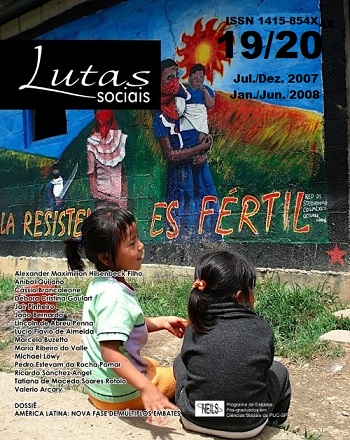Peculiarities of the the political history of contemporary Brazil: Notes toward an evaluation of the cycle of supremacy of the PT and CUT
DOI:
https://doi.org/10.23925/ls.v0i19/20.18759Keywords:
Governo PT, Neoliberalismo,Abstract
Brazilian capitalism lost its growth impulse in 1980. National wealth doubled in the almost thirty years since then, but the population also did. In last the twenty eight years, however, Brazil only “exploded” politically two times: during the campaign for direct election of the president in 1984 and during the campaign against Collor in 1992. In last the seven years, Argentina, Bolivia, Ecuador, and Venezuela experienced revolutionary situations, but Brazil did not. The democratic system preserved stability. The explanation of this peculiarity rests, among other factors,on the role of the unions, the CUT, the PT, and, also, Lula. These served as a non-improvised leadership of the opposition to neoliberal adjustments implemented during the 1990’s.Metrics
Metrics Loading ...
Downloads
Published
2008-06-20
How to Cite
Arcary, V. (2008). Peculiarities of the the political history of contemporary Brazil: Notes toward an evaluation of the cycle of supremacy of the PT and CUT. Lutas Sociais, (19/20), 150–162. https://doi.org/10.23925/ls.v0i19/20.18759
Issue
Section
Dossier
License
Matérias assinadas não expressam necessariamente a posição do coletivo da revista e são de exclusiva responsabilidade do(a)s respectivo(a)s autore(a)s.
Ao enviar seus textos, o(a)s autore(a)s cedem seus direitos à Lutas Sociais, que autoriza, com prévia permissão do Comitê Editorial, a reprodução das publicações, desde que conste o crédito de referência.



